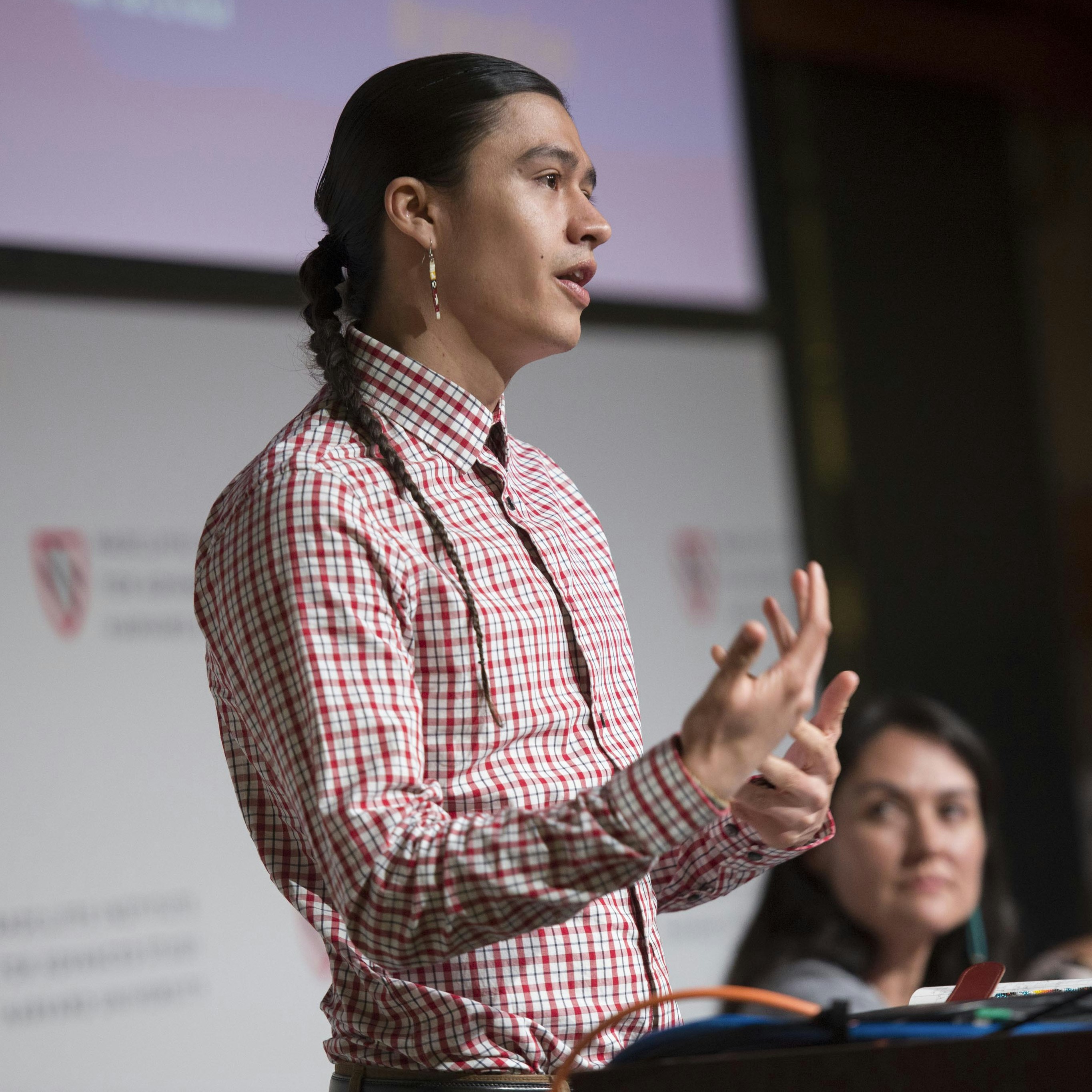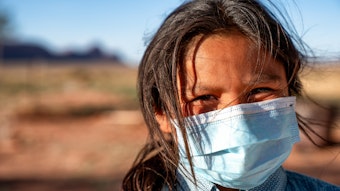Native Peoples, Native Politics

Politics requires more than voting and electoral mobilization. It requires knowledge of law, organization, identity, history, and culture. This reality is very much evident in Native American life today, where Native communities are sovereign nations within the United States, yet must still negotiate politically within a federal democratic system that at times inconsistently honors their rights, their land and water, and their ways of life.
The Radcliffe Institute, in partnership with the Harvard University Native American Program, is hosting this conference to explore a range of mechanisms for political expression with leading members of Native communities, academics, policy makers, journalists, students, artists, and writers.
Join the conversation on Twitter: www.twitter.com/RadInstitute
#radnative
This event at the Radcliffe Institute is part of the Initiative on Native and Indigenous Peoples.

Keynote Address
Introduction by Alyssa Mt. Pleasant (Tuscarora [patrilineal]), assistant professor of Native American studies, University at Buffalo; 2015–2016 Radcliffe Institute Fellow
Keynote Address by Robert Odawi Porter (Seneca Nation), senior advisor, Dentons US LLP; 67th President, Seneca Nation of Indians

Panel 1: Native Law and Legal Strategy
OPENING BLESSING
Jonathan Perry (Wampanoag Tribe of Gay Head [Aquinnah]), tribal councilman
WELCOME
Lizabeth Cohen, dean of the Radcliffe Institute and Howard Mumford Jones Professor of American Studies in the Department of History, Harvard University
INTRODUCTION
Daniel Carpenter, faculty director of the social sciences program at the Radcliffe Institute, member of the Provost’s Advisory Council on Native and Indigenous Issues, and Allie S. Freed Professor of Government in the Faculty of Arts and Sciences, Harvard University
PANEL 1: NATIVE LAW AND LEGAL STRATEGY
Moderated by Maggie McKinley (Fond du Lac Band of Lake Superior Ojibwe), Climenko Fellow and lecturer on law, Harvard Law School
Richard Guest, attorney, Tribal Supreme Court Project, Native American Rights Fund
Diane J. Humetewa (Hopi), United States district judge, United States District Court, District of Arizona

Panel 2: Native Governance and Politics
Moderated by Daniel Carpenter
Karen Diver (Fond du Lac Band of Lake Superior Chippewa), special assistant to the president for Native American affairs, White House; Former Chairwoman, Fond du Lac Band of Lake Superior Chippewa
John Dossett, general counsel, National Congress of American Indians
Sylvia McAdam (nêhiyaw Nations), cofounder, Idle No More

Panel 3: Native Politics in Literature and Art
Moderated by Shelly Lowe (Navajo), executive director, Harvard University Native American Program
Kristiana Kahakauwila (Native Hawaiian), writer; 2015–2016 Lisa Goldberg Fellow, Radcliffe Institute for Advanced Study
Frank Waln (Sicangu Lakota), musician
Matika Wilbur (Swinomish/Tulalip), photographer and creator, Project 562

Panel 4: Native Politics in Broadcast Media and Film
Moderated by Adrienne Keene (Cherokee Nation of Oklahoma), blogger, Native Appropriations; postdoctoral fellow in anthropology, Brown University
Irene Bedard (Inupiaq/Yupik/Cree), actor
Migizi Pensoneau (Ponca/Ojibwe), member, the 1491s
Loris Taylor (Hopi), president and CEO, Native Public Media
CLOSING REMARKS
Daniel Carpenter


